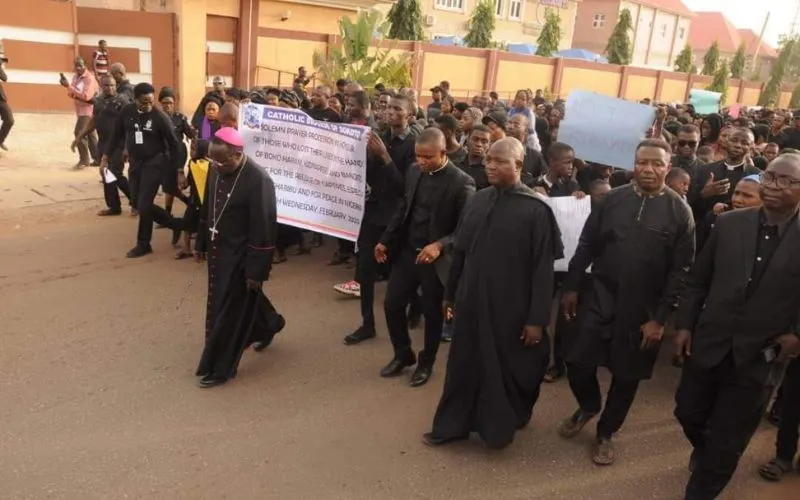For the Nigerian Catholic Church leader, “We are all under the tranquilizing drug of complacency, that we are merely either comparing numbers, or attributing ethnic or faith identities to the dead.”
“Neither the brutality, bestiality, primitivism, nor the callousness, viciousness, wickedness, barbarity, or cruelty of the murderers on rampage can stir us from our stupor,” he says, weighing in on the April 14 attack in Plateau State that also claimed the lives of two children aged three and five years.
In Nigeria, he further laments, “there will be verbal condemnations, faint and veiled threats that are merely routine.”
There is going to “be enough blame to pass around,” the vocal Nigerian Catholic Bishop, who is known for good governance advocacy observes.
He faults government authorities responsible for safeguarding Nigerians, adding that it would “be redundant to say normalcy has returned because it never went anywhere at all.”
“Those who are supposed to have stopped this from happening will continue their lives,” the Local Ordinary of Sokoto laments in his April 15 statement, which he issued after presiding over Chrism Mass in his Episcopal See.
He goes on to paint a grim picture of the relentless loss of innocent lives in Plateau State, likening it to “tributaries” flowing into an invisible ocean of blood that now threatens to swallow the Plateau.
“The streams have flowed from different directions—through Jos, Dogo Na Hawa, Bukuru, Gwong, Shendam, Yelwa, Wase, Langtang, Riyom, Kadarko, Shere, (and) Miango, to mention only a few,” he says.
Bishop Kukah further says that “one would need to look into a magnifying glass to see which communities have not been touched in Plateau.”
“In other parts of the country, the bandits continue their dances of evil, encircling the landscape, capturing, torturing, and inflicting the harshest form of inhuman treatment on our people,” he says.








